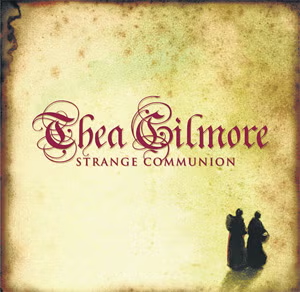Your support helps us to tell the story
From reproductive rights to climate change to Big Tech, The Independent is on the ground when the story is developing. Whether it's investigating the financials of Elon Musk's pro-Trump PAC or producing our latest documentary, 'The A Word', which shines a light on the American women fighting for reproductive rights, we know how important it is to parse out the facts from the messaging.
At such a critical moment in US history, we need reporters on the ground. Your donation allows us to keep sending journalists to speak to both sides of the story.
The Independent is trusted by Americans across the entire political spectrum. And unlike many other quality news outlets, we choose not to lock Americans out of our reporting and analysis with paywalls. We believe quality journalism should be available to everyone, paid for by those who can afford it.
Your support makes all the difference.Decent Christmas albums don't come along that often – it's ten years since Low's remarkable Christmas, while the last unqualified success, Aimee Mann's One More Drifter in the Snow, arrived in 2006 – so we should celebrate an undertaking as poised and thoughtful as Thea Gilmore's Strange Communion, the best of this year's batch of seasonal offerings.
Following the recent trend towards more non-denominational celebrations, Gilmore opens the album with "Sol Invictus", a pagan hymn to winter solstice, sung a cappella with the Sense of Sound Choir, before offering "Thea Gilmore's Midwinter Toast" in agnostic manner. "I don't believe in many things, but here's my hymn to you all", she admits, facing the uneasy prospect of the new year with hope but no illusions. T S Eliot's "The Journey of the Magi" provides the opening image to "Cold Coming", Gilmore's folk-rock rallying-cry celebrating Jesus as outlaw revolutionary, "the old reunion of the rebel with the fight", and finding an even colder coming in "the ringing of the till"; while later, Louis MacNeice's "Autumn Journal" furnishes the litany of unflinching images narrated over guitar, piano and evocative vinyl crackle in "Book of Christmas".
Lest her Christmas slip too far towards the cautionary and sober-sided, Gilmore offers her own unabashed attempt at a Christmas single with "That'll be Christmas" – and makes a better fist of it than most, mingling sharp coinages like "faith, hope and gluttony" with unusually fresh, evocative images over a rolling pop groove streaked with slide guitar. This album's "Fairytale of New York", meanwhile, is not so much her melancholy separation song "December in New York", as the celtic-flavoured duet "St. Stephen's Day Murders", an obscure Elvis Costello oddity on which DJ Mark Radcliffe plays the Shane MacGowan part, brusquely sharing anticipation of "laughter and tears over Tia Marias". But it's another obscure cover, of Yoko Ono's "Listen, the Snow is Falling", which provides the album's most magical moment, Gilmore's delivery a hushed murmur over a shimmering synth-pad sparsely illuminated by the occasional chime.
Elsewhere, "Old December" is another non-denominational celebration of the season – "whoever you praise, raise a glass to these days" – while acoustic guitar and an intimate shiver of strings lends an Astral Weeks ambience to the lovely "Drunken Angel", which carries much the same message in more evocative language, promising that "Winter tells its truth to anyone who'll listen/It will whisper to you slowly when the light is low". Christmas: it's not just for Christians, thank god.
Download this Listen, the Snow is Falling; That'll Be Christmas; Sol Invictus; Drunken Angel

Join our commenting forum
Join thought-provoking conversations, follow other Independent readers and see their replies
Comments